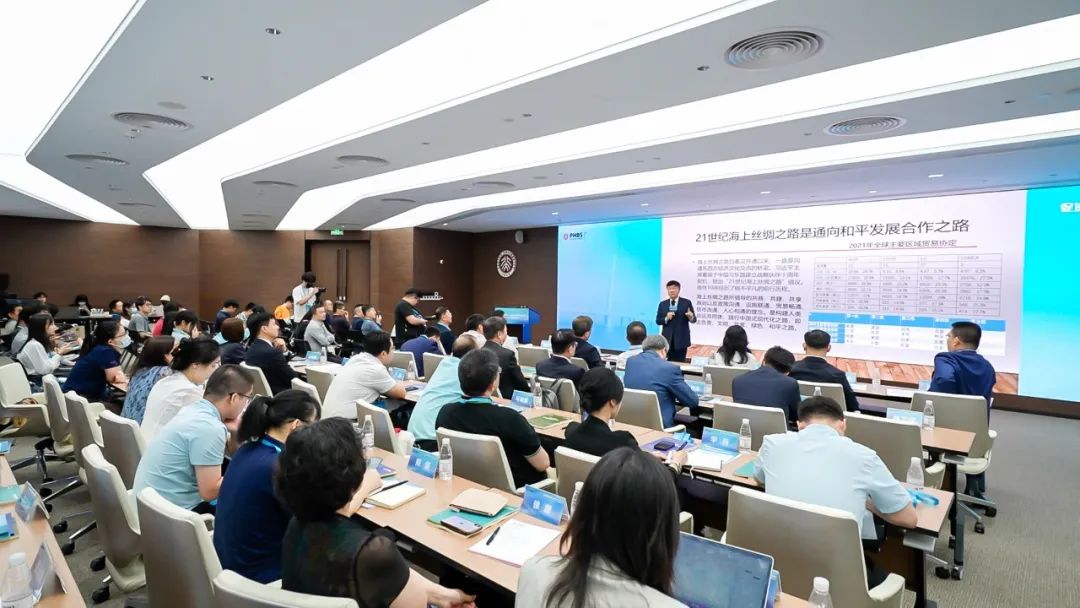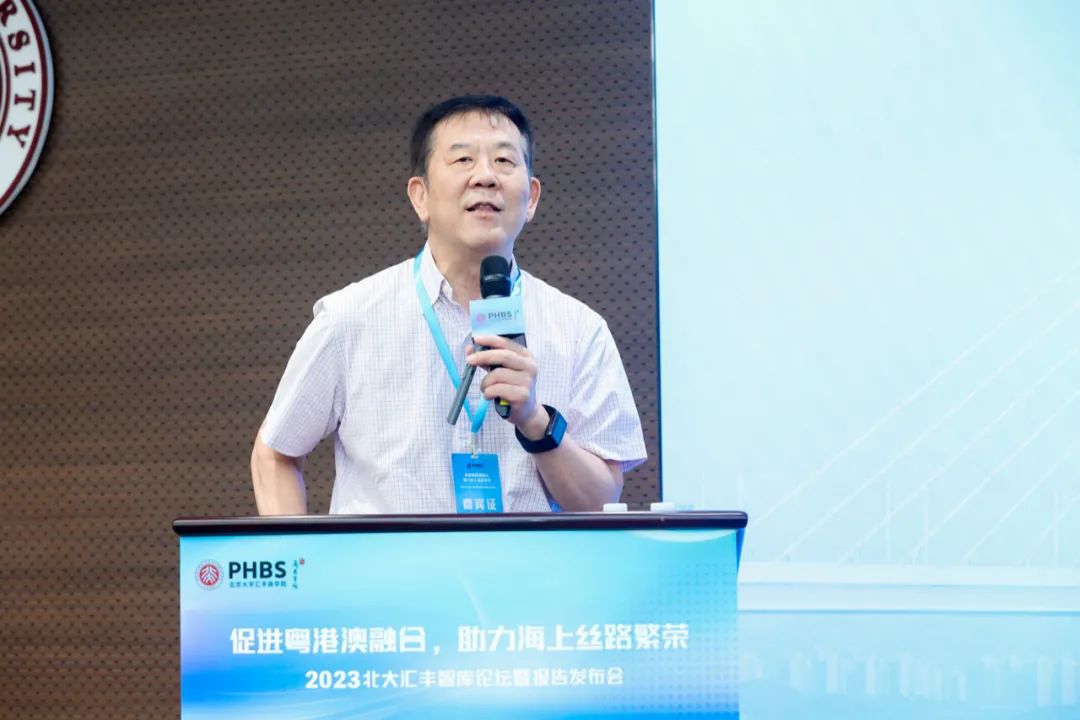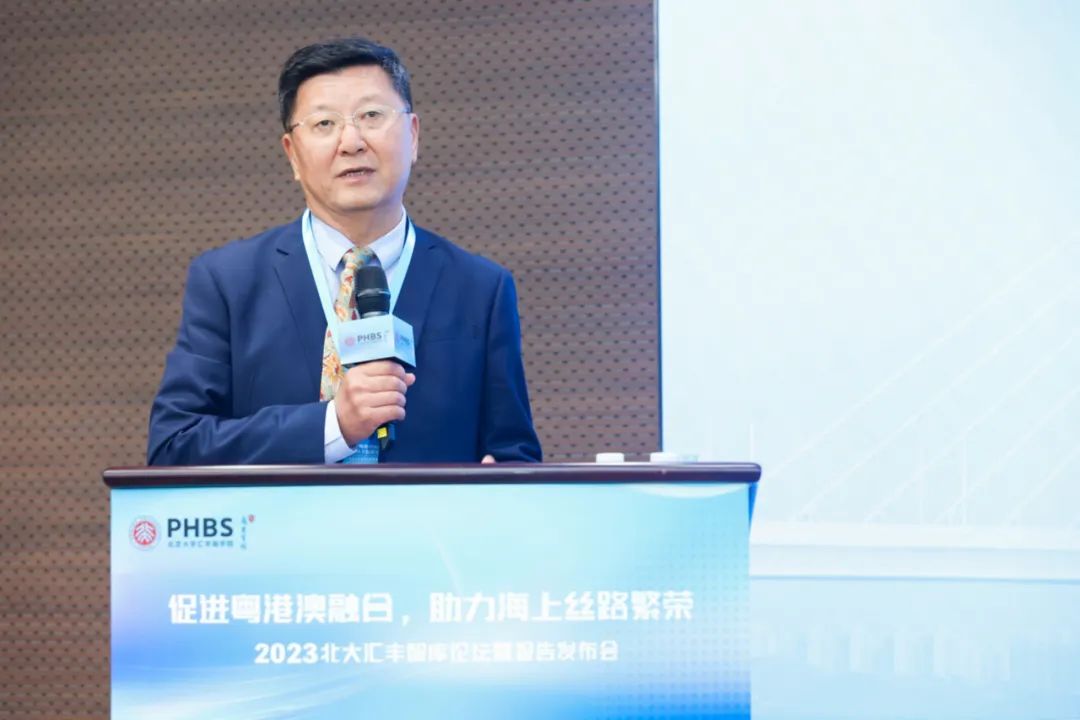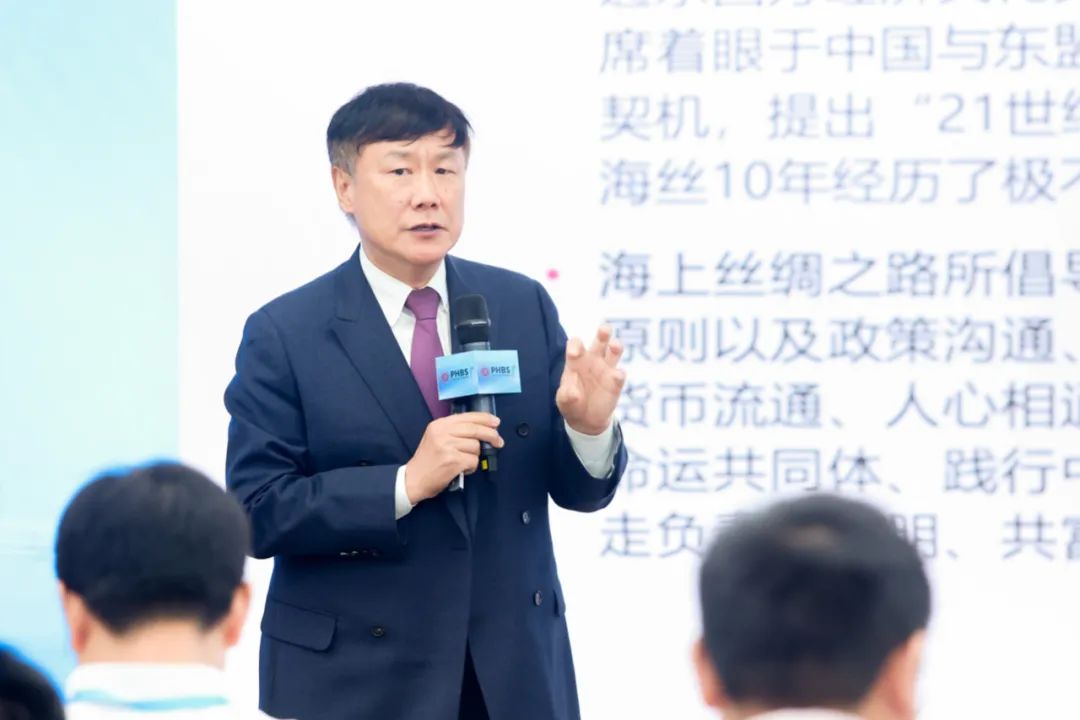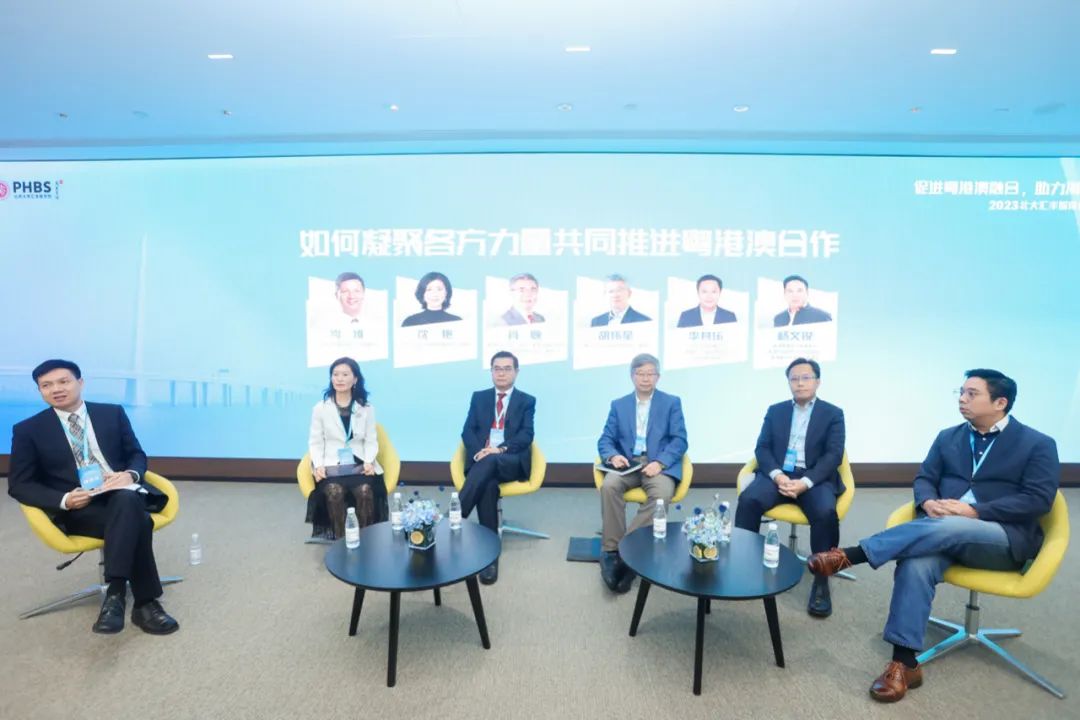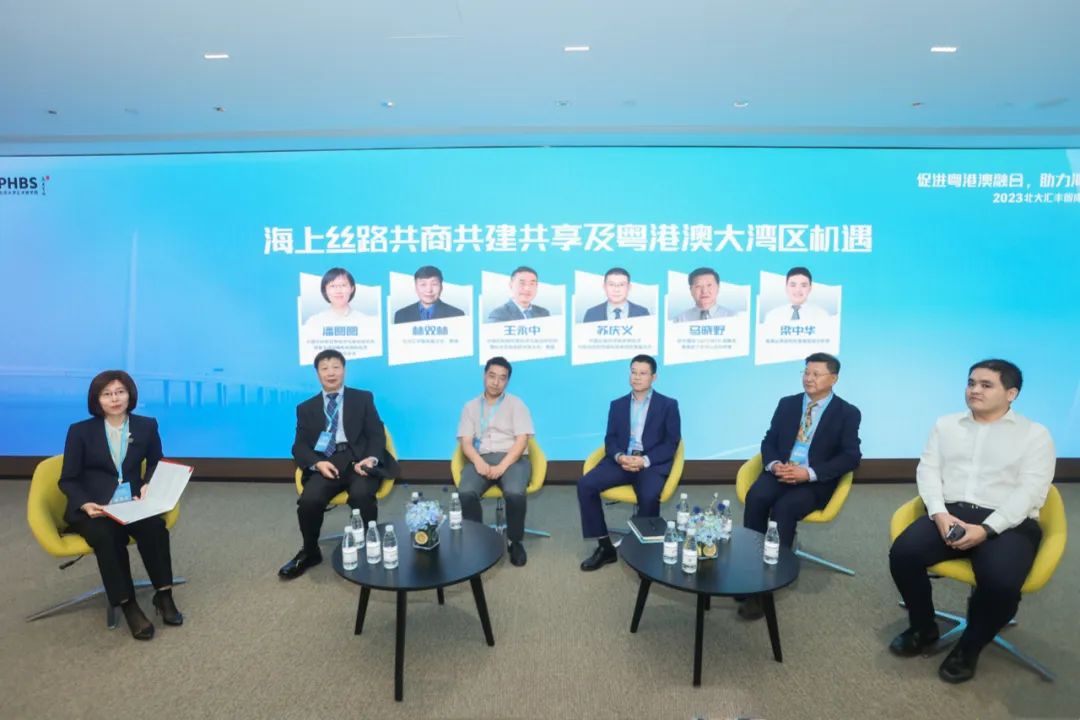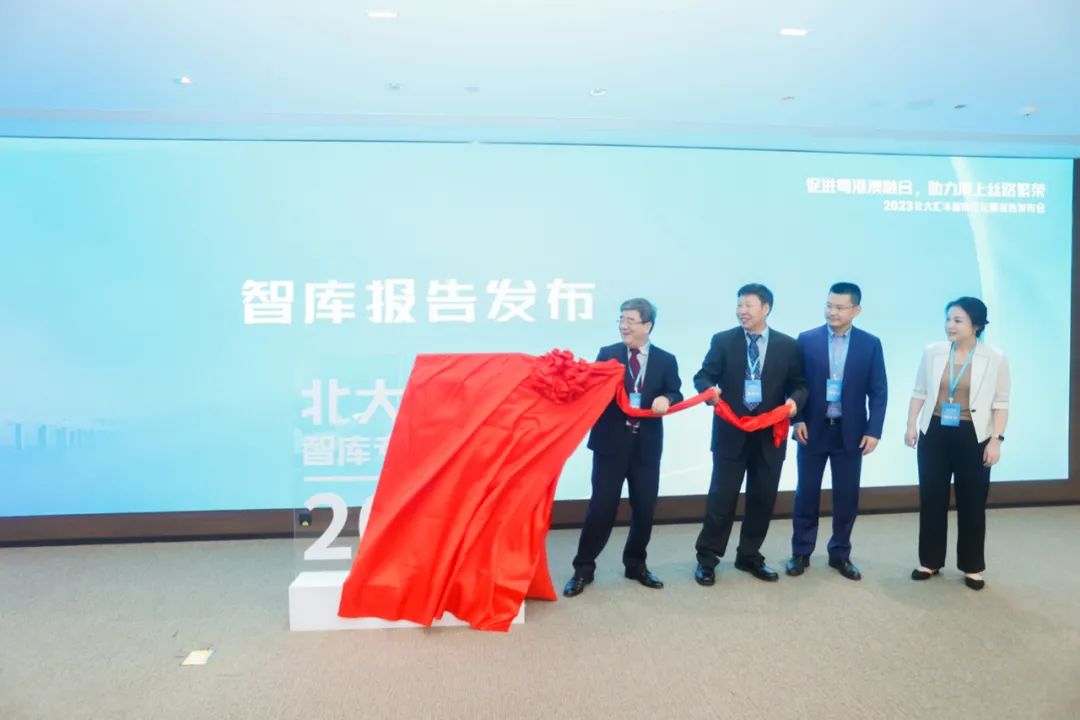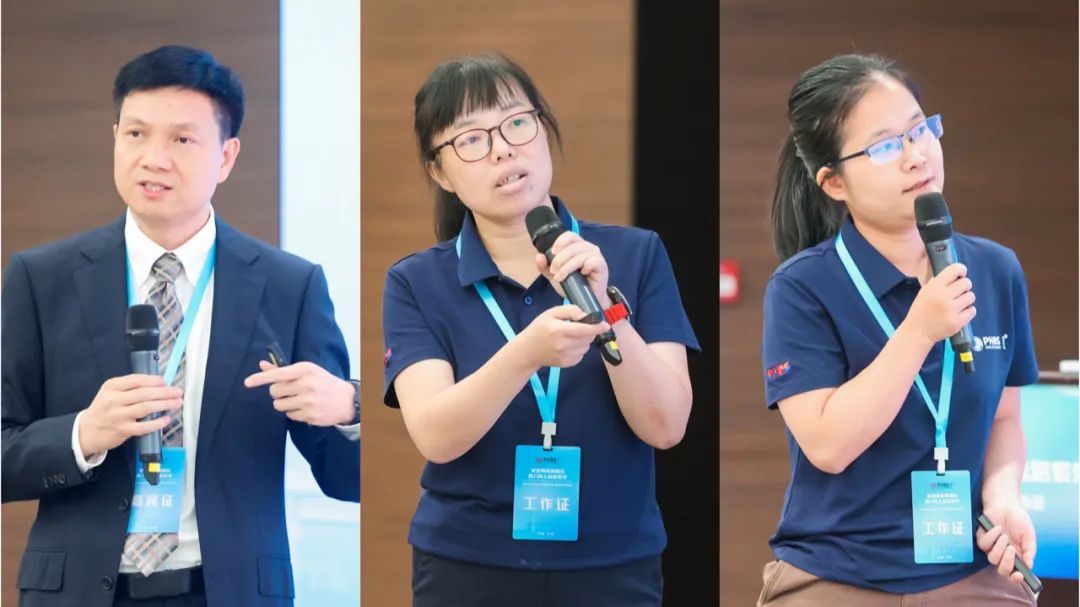On June 18, hosted by Peking University HSBC Business School (PHBS), the 2023 PHBS Think Tank Forum and Report Release was held at the Qianhai Institute of China-Britain. With this year marking the 10th anniversary of the One Belt One Road Initiative and the 4th Anniversary of the Outline of the Guangdong-Hong Kong-Macao Greater Bay Area Development Plan, the event focused on “promoting the integration of Guangdong, Hong Kong and Macao, and the prosperity of the Maritime Silk Road.” As the first public event since the establishment of the Think Tank, the one-day event featured one forum, two roundtable discussions, and the release of three reports, attracting experts, scholars, and practitioners to share forward-looking perspectives, provide diverse insights, and exchange the latest research findings.
The Forum
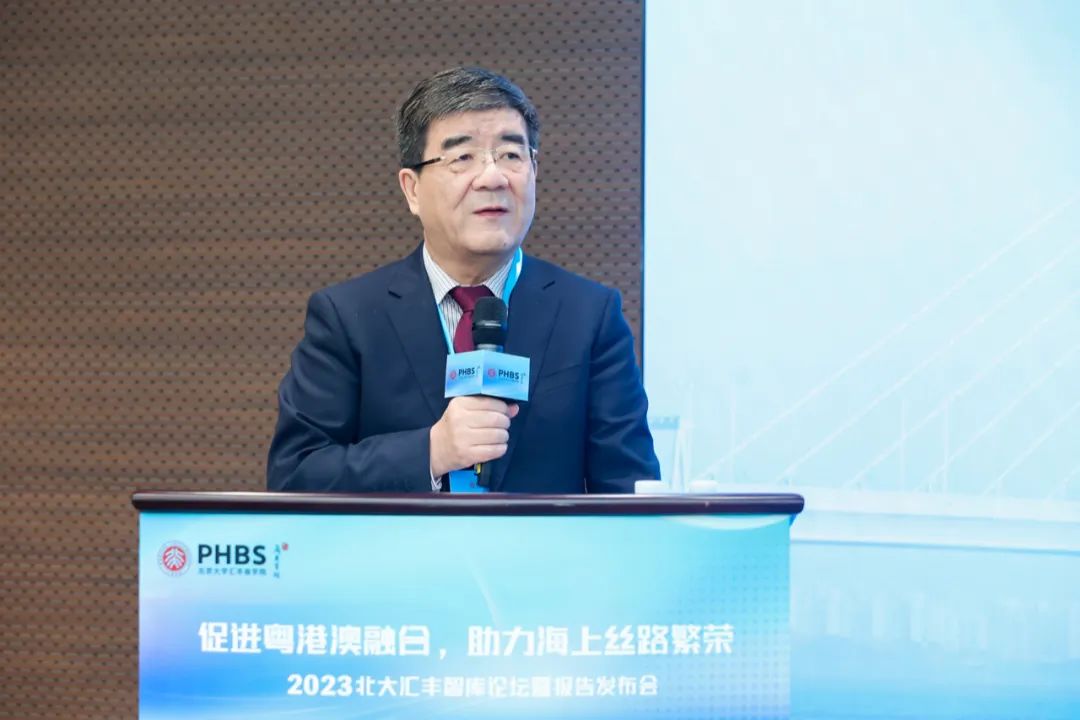 Professor Hai Wen
Professor Hai Wen
Chair Professor Hai Wen, vice chairman of Peking University Council, founding dean of PHBS, and director of PHBS Think Tank, asserted that PHBS always practiced the spirit of Peking University in terms of industry impact, international presence, academic influence, and social influence, and that PHBS Think Tank was an important initiative to exert the school’s social influence. He elaborated the comparative advantages, research priorities, and distinctive achievements of the Think Tank. He hoped that the participants could continue to support the Think Tank to grow as an institute based on the Bay Area, with an eye on the Silk Road and with a global mindset.
Professor Tang Jie
Tang Jie, director and professor of the Chinese University of Hong Kong (Shenzhen), delivered a keynote speech titled "High-Level Opening and Innovative Development of the Bay Area." He analyzed the development status and future trends of the Guangdong-Hong Kong-Macao Greater Bay Area from eight perspectives: "planning goals and positioning," "enhancing the originality and transformation capabilities of emerging technologies," "transportation infrastructure construction," "balanced development on the east and west banks of the Pearl River", "Shenzhen's efforts to promote a balanced industrial layout," "industrial clusters that break through urban administrative boundaries," "population aggregation and urban space reconstruction," and "innovative catching up and collaborative division of labor."
Ma Xiaoye
Ma Xiaoye, former Chinese observer to GATT/WTO and visiting scholar at the Stimson Center in the United States, made a speech entitled "Cooperation Space and Stakeholders of the Belt and Road Initiative.” He discussed infrastructure construction, sustainable business development, and adaptation to the human and social environment in promoting the construction of the Belt and Road initiative. He further suggested that Shenzhen should fully leverage its own unique experience in industrial development.
Zhang Yansheng
Zhang Yansheng, chief researcher of the China Center for International Economic Exchanges, delivered a keynote speech titled "Guangdong-Hong Kong-Macao Greater Bay Area Joins Hands to Build a Pioneering Zone for Maritime Silk Road Cooperation." He noted that the "21st Century Maritime Silk Road" is a road leading to peaceful development and cooperation. With the new changes in the international environment in the past ten years, this initiative has been on an extraordinary journey. Comparing the Regional Comprehensive Economic Partnership (RCEP) based on free trade with the Indo-Pacific Economic Framework for Prosperity (IPEF) based on geopolitics, he suggested that the Greater Bay Area should promote high-level self-reliance and self-improvement, build a pioneering area for Maritime Silk Road cooperation and a productive service network, and practice Chinese-style modernization.
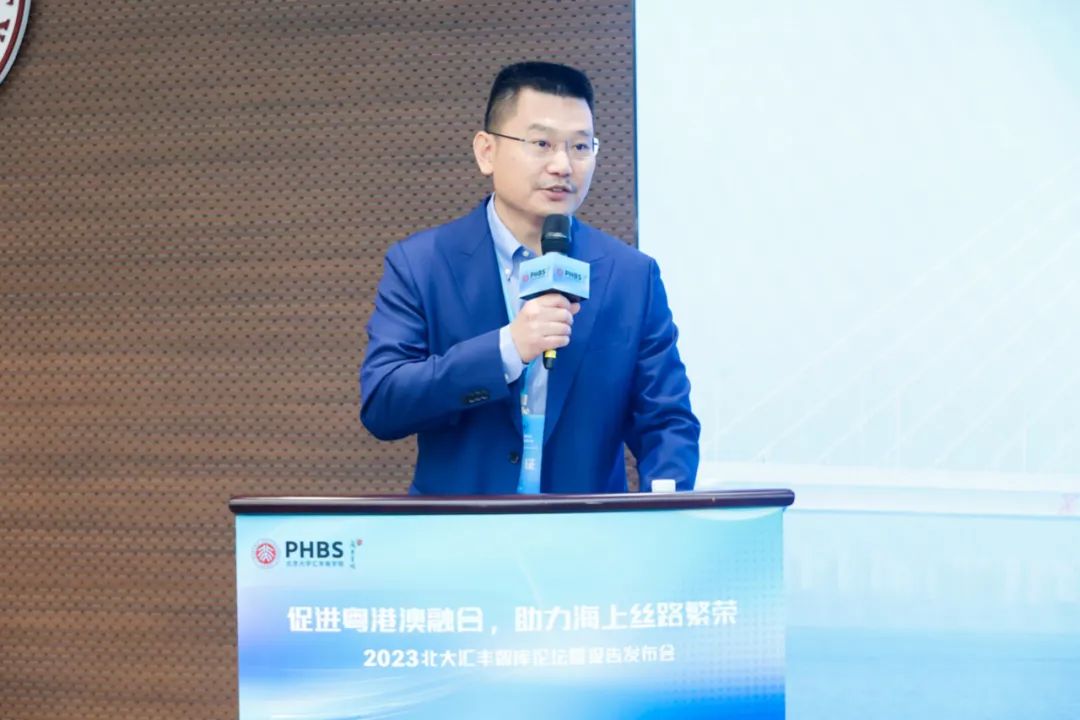
Ren Ting, secretary of the Party Committee and vice dean of PHBS presided over the opening ceremony and keynote speech.
From left to right: Shen Yan (2nd left) , associate dean and professor of PHBS; Xiao Geng, director of the Policy and Practice Research Institute of the Chinese University of Hong Kong (Shenzhen) Advanced Institute of Finance; Hu Weixing, dean of the Faculty of Social Sciences of the University of Macau; Li Qile, member of the Shenzhen Municipal Committee of the Chinese People's Political Consultative Conference and general manager of the Guangdong Region of HSBC Bank (China) Co., Ltd.; Yang Wenrui, president of the Hong Kong Smart City Alliance, vice president of the Hong Kong Internet Professional Association, and member of the Hong Kong Metropolitan University Council.
In the roundtable discussion on the theme of "How to unite all forces to jointly promote cooperation between Guangdong, Hong Kong and Macao", scholars from key institutions and associations in the Greater Area shared their insights and views. The roundtable discussion was chaired by Cen Wei, secretary-general of PHBS Think Tank and associate professor of PHBS.
From left to right: Lin Shuanglin (2nd left), deputy director of PHBS Think Tank and professor of PHBS; Wang Yongzhong, director of the International Commodities Research Office of the Institute of World Economics and Politics at the Chinese Academy of Social Sciences; Su Qingyi, deputy director of the International Trade Research Office of the Institute of World Economics and Politics at the Chinese Academy of Social Sciences; Ma Xiaoye, former Chinese observer to GATT/WTO and visiting scholar at the Stimson Center in the United States; Liang Zhonghua, chief macro analyst at Haitong Securities Research Institute.
The other roundtable discussion focused on "co-consultation, co-construction and sharing along the Maritime Silk Road and opportunities in the Guangdong-Hong Kong-Macao Greater Bay Area." It was chaired by Pan Yuanyuan, associate researcher at the Institute of World Economics and Politics of the Chinese Academy of Social Sciences and the International Investment Research Office of the National Global Strategy Think Tank.
Think Tank report released
Cen Wei, secretary-general of PHBS Think Tank, Cai Rong, deputy secretary-general, and Zou Xin, associate researcher, respectively introduced reports
The highlight of the event was the release of three research reports by the PHBS Think Tank, including
Review and Prospect of the Four-year Economic Development of Guangdong-Hong Kong-Macao Greater Bay Area,
The Situation and Prospect of China-ASEAN Manufacturing Competition, and
Review of Historical Cooperation and Integrated Development in the New Era between Shenzhen and Hong Kong. In the past three years since its establishment, PHBS Think Tank has been at the forefront of China's reform and opening up, providing research findings and policy recommendations for the government, enterprises, and the public through publications, reports, lectures, and meetings. In 2021, it was selected as one of the "New Type Think Tanks with Distinctive Characteristics of Ordinary Universities in Guangdong Province."
By Annie Jin
Source: Research Office and PR & Media Office





